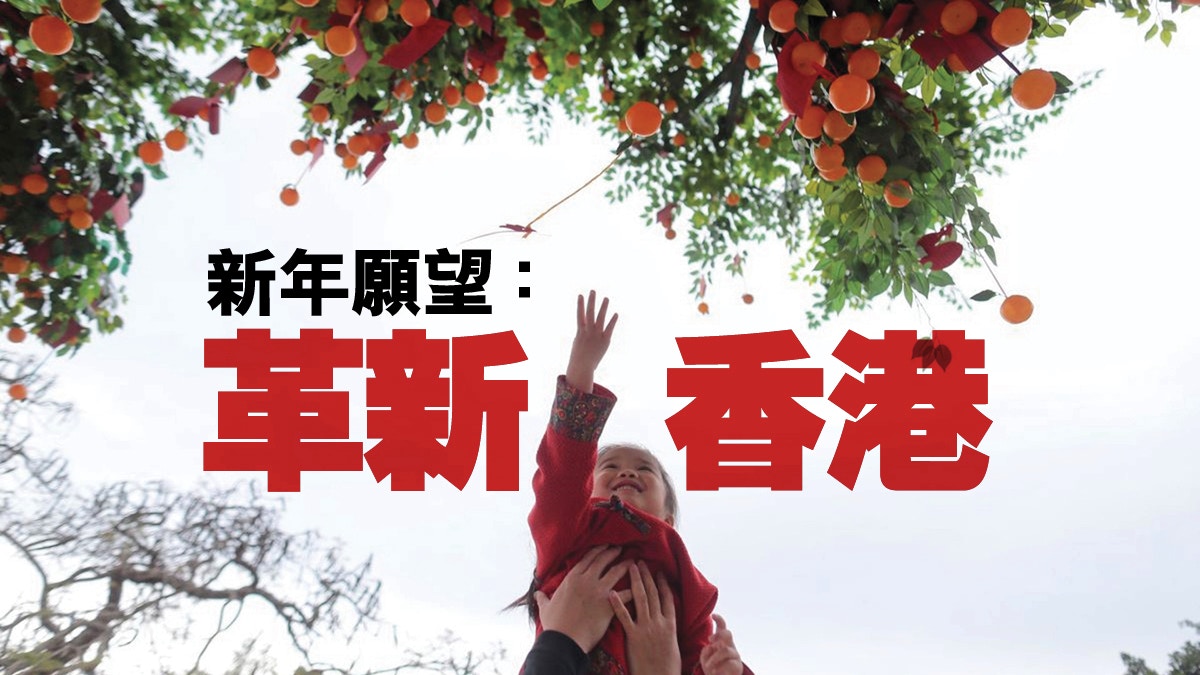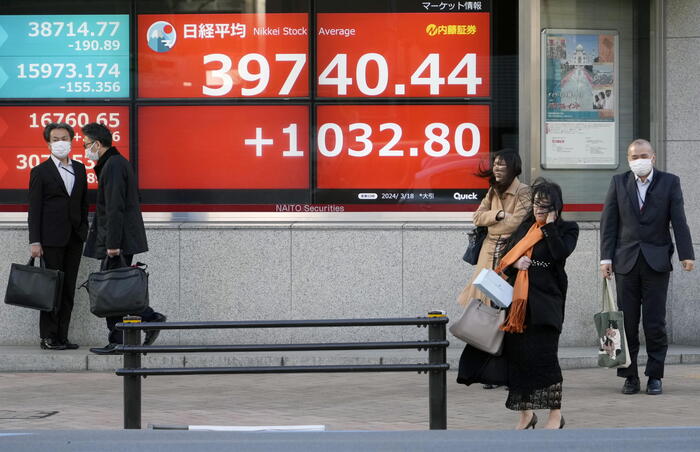01 view
Written by: Hong Kong 01
2021-02-08 06:00
Last update date: 2021-02-08 06:00
The Year of the Gengzi Rat is finally over, ushering in the Year of the Ox.
In Chinese culture, the images of the mouse and the cow are completely different: the former is timid and fearful, and the latter is hardworking, hardworking, and has a pioneering spirit, so it is known as the "blazing bull."
In the new year, apart from the hope that Hong Kong will bid farewell to the new crown epidemic as soon as possible, is the government willing to face up to the social problems and conflicts exposed by the epidemic, and then become a wastelander and create a new world?
In the Year of the Rat, Hong Kong has not shaken off the political aftermath of the anti-amendment movement, but has also encountered the sudden new crown epidemic, and people's livelihood issues have been exposed clearly-the unsuitable living environment of subdivided houses, unpaid leave has become common, and unemployment has become a lot of work. Tsai’s nightmare... This is not only due to the government’s hindsight, and the lack of decisive measures to prevent the epidemic, but also the lack of understanding of social governance by officials.
For example, in Jordan, where the epidemic is more serious at the end of the year, the government did not understand the particularity of the environment and population composition of old buildings, and underestimated the complexity of epidemic prevention.
Behind the many problems caused by the epidemic are more serious structural problems that have not been resolved for a long time.
The public health problems caused by the housing environment under the Jordan outbreak are fundamentally the housing problems of Hong Kong people.
This inevitably cannot be solved by strengthening testing alone. Instead, the government needs to implement an increase in public housing in the future so that everyone has a suitable place to live, so as to avoid a public health crisis caused by a poor living environment.
Another example is that Hong Kong’s economy has been hit hard, and of course there are negative effects brought about by the epidemic, but the essence is that Hong Kong’s industrial structure is fragile and single, making many industries vulnerable.
Government financial subsidies can alleviate the urgent needs of some enterprises and industries, but in the long run, only by adjusting industrial policies and industrial resource allocation can we help Hong Kong build more diversified and stable development space.
At the beginning of the outbreak, there was a shortage of masks at the port, and there was even a panic buying. Many people lined up to buy masks.
(Profile picture)
It can be seen from this that the government's practice of "treating the head for headaches and treating the feet for pain" cannot solve the epidemic and many of its associated problems in the long run.
Officials lack problem-oriented awareness and are not used to thinking about the causes of problems, let alone proposing solutions.
To solve the problem fundamentally, the government must not only dare to use drugs, that is, to enhance its governance action, but also learn to diagnose symptoms, that is, to see the nature of the structure through the surface of the problem.
Take the severe housing problem as an example. In the past year, the government only recovered 24 hectares of land, which is hardly positive.
The Fanling Golf Course, covering an area of 172 hectares, was "released", allowing only about 4,600 public units to be built on the land that could have built 30,000 public units. The 32 hectares promised to be repossessed was also renewed for three years last year.
The Government knows the urgency of the housing problem in Hong Kong and also knows the solutions that can be adopted. So where is the problem?
Only by practicing social justice can we enjoy true freedom
Perhaps before discussing how to diagnose symptoms and prescribe medicines, we should ask the government how it understands its own roles and responsibilities?
The Lunar New Year is an opportunity to relive the traditional wisdom of the Chinese.
"The old have their end, the strong have their usefulness, the young have their strengths, the widowed and lonely, and those who are sick, all have support." The Book of Rites depicts a beautiful society that helps the disadvantaged and protects the people, but it is surprising However, the Hong Kong government does not seem to have this awareness, and even turns a blind eye to the social injustices exposed by the epidemic.
For example, living in a dilapidated tenement house may be more susceptible to the virus than living in a glamorous mansion; workers engaged in construction, catering, cleaning and other grassroots jobs are more likely to be infected than white-collar workers who can work at home.
At present, whether it is the epidemic problem or the more core housing and economic structure issues, the government has the responsibility to make adjustments. "Secondary distribution" is an inevitable way to avoid it.
However, officials have always accepted the old mindset of "don't care about so much", and they still resist promoting the fair distribution of resources.
The land lease of the 172-hectare Fanling Golf Course expired on August 31 this year.
The authorities stated that after three years, 32 hectares of land will be "returned to the government", but if the remaining 140 hectares are approved for renewal, the government will levy a land price reduction or exemption from July 2027.
(Information Picture/Photo by Li Zetong)
The government’s usual reason is "freedom."
Hong Kong has a reputation as a "free port" and has been rated as the freest economy for 19 consecutive years.
For this reason, the government often excuses the redistribution of various wealth and resources on the grounds that excessive intervention will damage the status of Hong Kong's "free port", such as a fairer tax system and the establishment of standard working hours regulations.
However, is this Hong Kong really free?
In the year when the epidemic was entangled, grassroots children could not freely use electronic tools to learn online, parents could not freely avoid the risk of going out to work during the epidemic, and families could not freely break the fate of intergenerational poverty through efforts, even more than 200,000 Residents of subdivided houses may not even have the freedom to stretch their bodies at home.
Freedom should be a human right enjoyed by everyone, but it seems to have become a privilege in Hong Kong.
The reason is that what the government maintains is only the freedom of the market, allowing the market to override others, and even infringe other freedoms.
It obviously forgets that "freedom" is the plural and not the singular!
The property market that only emphasizes market freedom will inevitably become more and more deformed under the free development of profit-loving capital. In the end, the rich and the poor will not only determine the size and comfort of the housing area, but will also squeeze the grassroots into three-free buildings and subdivided houses. Fundamental issues affecting health equity and public health.
Similarly, the myth of "small government, big market" market freedom will inevitably bring about the poor education and medical care for the poor, resulting in various injustices and ultimately depriving Hong Kong people of real freedom.
Therefore, the government’s active role is not to "interfere" in market freedom, nor is social welfare to "rob the rich and help the poor," but to distribute resources more equitably so that the people can enjoy more equal freedom.
The government announced that it would maintain the minimum wage at 37.5 yuan per hour before crossing the new year. Officials probably thought this was just a math problem, and they didn't know what social justice involved was.
Hong Kong's GDP ranks among the best in the world, but if it is based on the exploitation of grassroots rights and freedoms, what is the significance of the gorgeous figures?
What's more, the median monthly household income has risen by 10.4% in the past two years. The increase in the minimum wage has clearly underperformed the labor market, and officials have failed even math problems.
The US government is seeking to double the minimum wage to 15 U.S. dollars (about 116 Hong Kong dollars). Of course, this is not because other people's math is better than us, but the new President Biden knows that wages are about social justice and affect whether people can enjoy equal dignity in life.
Hong Kong's GDP ranks among the best in the world, but if it is based on the exploitation of grassroots rights and freedoms, what is the significance of the gorgeous figures?
(Data Picture/Photo by Gao Zhongming)
Farewell to the "New Three Principles of the People", Hong Kong people's fate is in the hands
In the past year, whether government officials suspended the levy of vacancy taxes on first-hand properties or repeatedly refused to establish unemployment assistance, they presented dogmatic theories or seemingly sophisticated data for a while, and then speculated that opposition was hindering governance.
When Chief Executive Carrie Lam Cheng Yuet-ngor put forward five legislative proposals last Thursday (February 4), including enactment of subdivided rent control and strengthening of fire safety in old buildings, he claimed that unless the Legislative Council had returned to normal, it would be difficult for officials to propose "bold but socially beneficial" Suggest".
But this is undoubtedly an overkill, because even if there are many incidents, Panmin has never opposed the government to build more public housing, ban subordinated housing, and promote industrial reforms.
Hong Kong has not become a fair and just city. The problem has always been the stubbornness and arrogance of the government, and the failure to understand the real difficulties of the citizens.
At the end of December last year, Lam Cheng also stated that Hong Kong has restored stability after the implementation of the "Hong Kong National Security Law". Now is the best time to invest. He seems to think that the equation to achieve stability is as simple as that, instead of seeing the socio-economic factors that lead to political instability. The structure has not changed. Even though Hong Kong has recovered on the surface, the people still live in anxiety and young people are still impetuous.
The Year of the Gengzi Rat is not easy, and many people even talk about the "New Three Principles of the People"—that is, Hong Kong people can only choose to be mobs, submissives or immigrants.
The "New Three Principles of the People" certainly means a joke, but it is a joke that makes people hard to laugh.
If there is freedom of choice, who would want to be a mob or "submissive", or abandon the home that was born in Sri Lanka and grow up in Sri Lanka, and go away?
If you want to be very Thai, some people will tell their fortunes during the Lunar New Year, and some will ask for visas for Hong Kong, but the fate of Hong Kong is not written on the wall, but is in the hands of every Hong Kong person.
In the New Year of the Ox, Hong Kong has a hundred reasons for continuing depression: the aftermath of political struggles, the unseen epidemic, the struggle between China and the United States... But there are also a hundred reasons for turning the crisis into peace: the persistence and promotion of "One Country, Two Systems" The consensus of fairness and justice, based on China’s economic opportunities facing the world.
If the Chief Executive’s five legislative proposals are only a starting point, and can completely solve the housing problem through land resumption and re-planning as soon as possible, and by increasing employment opportunities and redistributing resources, fundamentally empowering grassroots citizens, then, in the Book of Rites The beautiful vision of is by no means unattainable.
If the "Budget" to be published two weeks later can reform the tax system, open up financial resources, and dare to invest resources to support social and economic reforms, Hong Kong's future is boundless.
As long as we don't be the scowling rat, but the pioneering cattle who dare to innovate, Hong Kong will surely be "brilliant" in the new year.
[01 Weekly Editorial] Breaking the "common sense" in 2020, recreating the future with a reformed heart
[01 Weekly News Editorial] The policy address does not see reforms, the economic structure needs urgent correction
[01 Weekly Editorial] China's successful international layout, how to position itself in Hong Kong
[01 Weekly Editorial] The spread of COVID-19 is a raging social injustice
Carrie Lam's deep-seated structural contradictions New crown pneumonia Hong Kong 01 basic-level property market property prices 01 weekly editorial 01 viewpoint 01 weekly report









